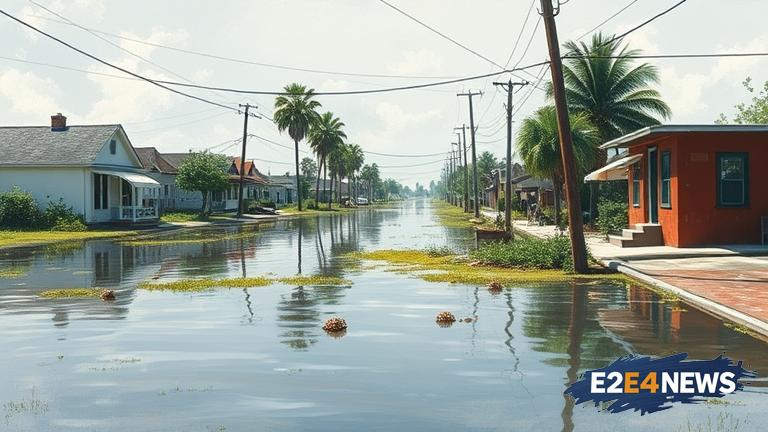It has been 20 years since Hurricane Katrina made landfall in Louisiana, causing catastrophic damage and loss of life. The storm’s impact was felt across the state, but particularly in New Orleans, where the levee system failed, inundating the city. In the years since, Louisiana has made significant strides in recovering from the disaster, with a focus on climate change, ecological restoration, and revitalizing affected communities. One of the key areas of focus has been the Ninth Ward, which was heavily damaged during the storm. Efforts to restore the area have included the creation of green spaces, the implementation of sustainable building practices, and the development of community-led initiatives. Climate change has also been a major concern, with rising sea levels and increased storm intensity posing a significant threat to the state’s coastal communities. To address this, Louisiana has implemented a range of measures, including the restoration of wetlands, the creation of natural barriers, and the development of climate-resilient infrastructure. Ecological restoration has also been a key priority, with efforts to restore the state’s natural habitats, including mangroves, marshes, and swamps. These habitats not only provide important ecosystem services, but also help to protect communities from the impacts of climate change. In addition to these efforts, there has been a focus on promoting sustainable development and reducing the state’s carbon footprint. This has included the development of renewable energy sources, the implementation of energy-efficient building practices, and the promotion of sustainable transportation options. Despite the progress that has been made, there is still much work to be done to ensure that Louisiana is prepared for the challenges of climate change. The state’s coastal communities remain vulnerable to storm surges and sea level rise, and there is a need for continued investment in climate-resilient infrastructure and ecological restoration. Furthermore, there is a need for greater community engagement and participation in the planning and decision-making process, to ensure that the needs and concerns of all stakeholders are taken into account. The 20-year anniversary of Katrina serves as a reminder of the importance of addressing climate change and promoting ecological restoration, and the need for continued action to protect Louisiana’s communities and natural habitats. The state’s experience in recovering from Katrina has also provided valuable lessons for other communities around the world, highlighting the importance of resilience, adaptability, and community-led initiatives. As Louisiana looks to the future, it is clear that there will be many challenges to overcome, but also many opportunities for growth and development. By prioritizing climate change, ecological restoration, and community-led initiatives, the state can help to ensure a healthier, more sustainable future for all its citizens. The Ninth Ward, in particular, has the potential to become a model for sustainable urban development, with its mix of green spaces, sustainable buildings, and community-led initiatives. However, this will require continued investment and support, as well as a commitment to addressing the ongoing challenges of climate change and social inequality. Ultimately, the recovery from Katrina has shown that even in the face of disaster, there is always the potential for renewal and transformation. By learning from the past and working together towards a common goal, Louisiana can build a brighter, more sustainable future for all its citizens.
